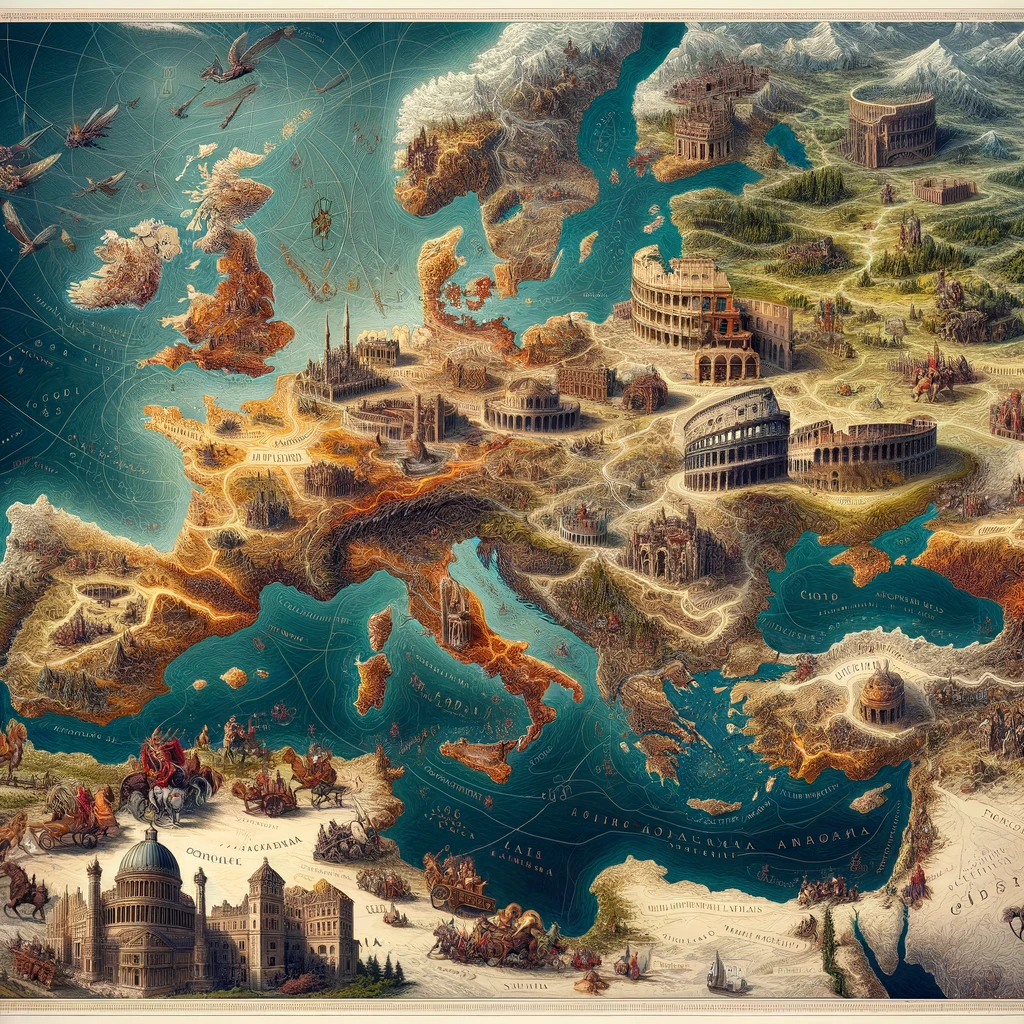Roman Roads:
The Ancient Romans built a network of roads that extended over 250,000 miles, of which about 50,000 miles were paved in stone. This allowed for rapid movement of armies, merchants, and messages across the empire.
The Death of Julius Caesar:
Julius Caesar was assassinated on the Ides of March (March 15) in 44 BC, being stabbed 23 times by members of the Senate.
Colosseum Naval Battles:
The Colosseum in Rome could be flooded to stage mock naval battles, known as “naumachiae.” This was achieved through elaborate engineering to hold water for the spectacle.
Ancient Fast Food:
Romans had something akin to fast-food restaurants called “Thermopolia.” These establishments served hot food and drinks to the bustling city populace and were popular among the lower classes.
Use of Different Languages:
Latin was the official language of the Roman Empire, but Greek was also widely used across its territories. In fact, in the Eastern Roman Empire, Greek became the primary language.
Roman Numerals:
The number system devised by the Romans is still partially used today, such as on clock faces and in book chapter listings.
Bread and Circuses:
The concept of “bread and circuses” originated in the Roman Empire as a way for the rulers to keep the general populace happy with free food and entertainment, minimizing social unrest.
Ancient Roman Makeup:
Roman women used cosmetics containing lead to achieve a pale complexion, which was a sign of high status. However, this practice had harmful health effects.
Taxation by Emperor Vespasian:
Emperor Vespasian famously imposed a tax on the use of public urinals, coining the phrase “Pecunia non olet” or “Money does not stink.”
Roman Apartments:
Many city dwellers in Ancient Rome lived in multi-story apartment buildings called “insulae.” These were often prone to fires and collapses but were a common form of urban housing.
